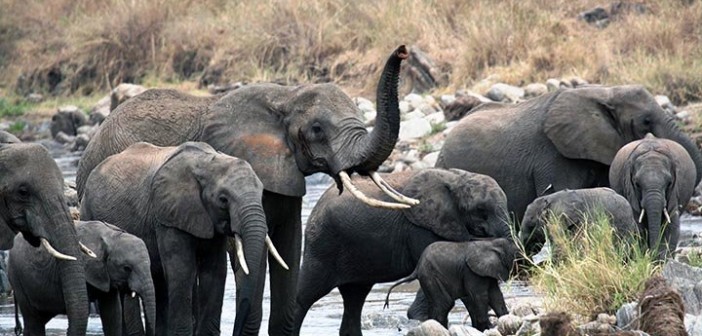With the Convention on International Trade of Endangered Species preparing for its 17th annual Conference of Parties, the United States has taken the opportunity to strengthen its own commitment to protecting endangered species.
The US Fish and Wildlife Service recently instituted a near-total ban on domestic commercial ivory trading. This ban seriously limits imports, exports and sales of elephant ivory across state lines. For years, the legal ivory trade has provided a cover for wildlife traffickers selling illegal ivory since, once the illegal ivory enters the market, it becomes nearly impossible to distinguish, limiting the effectiveness of law enforcement to intercept black market shipments. Demand for ivory also largely outpaces the capacities of legal markets which means that, as long as the ivory trade exists, people will turn to the black market to fill demand.
This ban has come at a good time for Elephants, as several CITES parties have stated their desire to reopen international commercial trade of ivory. The example set by the US on this issue will hopefully lead other countries to take a stand against the international ivory trade.
In gratitude for the progress towards protecting elephants that the USFWS has accomplished thus far, Dr. Goodall, along with other influential conservationists, have written a letter of thanks to Director, Dan Ashe.
The letter congratulates the USFWS for taking action and thanks them for ensuring all voices were considered in the decision-making process:
“Throughout the process, the principles of transparency and inclusion were on full display, and we appreciate the lengths that these employees went to in reaching out to stakeholders inside and outside of the conservation and animal welfare communities.”
And it’s not just organizations and governments who are interested in the welfare of elephants. Since the USFWS propose the rule in 2015, they have received over 1.3 million comments in support of their decision, showing that the American people care deeply about this species.
The letter also encourages the USFWS to build on their momentum and keep pushing for stricter regulation, to ensure that elephants are still around for people to care about in years to come.
“It is incumbent upon all of us—NGOs, governments, private citizens, and the corporate sector—to find ways to further protect this most indispensable of species, and the momentum generated by the new U.S. federal regulations and state laws can only help.”
Though there is still more to be done to protect elephants and other species threatened by wildlife trafficking, thanks to the hard work of people who care, there is hope for the future of these magnificent animals.
To read the full letter, click here.




